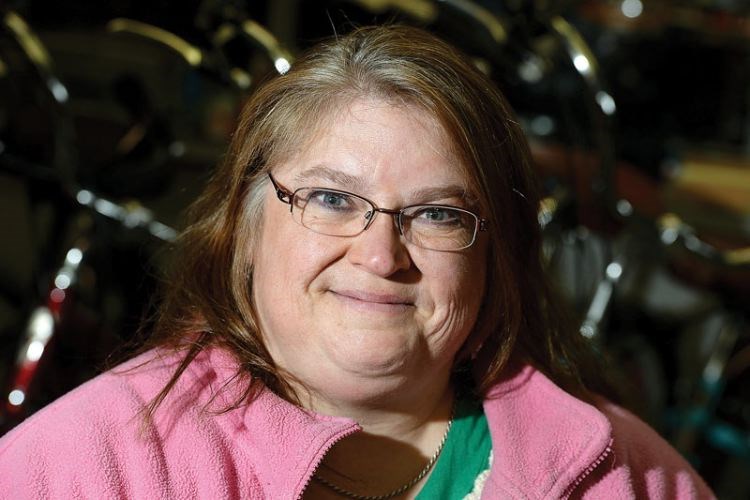When Donna Clark was diagnosed with depression in 2003, she had few places to turn to for help.
The effects of the mental health disease forced her to quit her job and then when she decided to re-enter the workforce before she was ready, she had to quit again.
"Back then I think I slept 20 out of the 24 hours [in a day]," she said. "I didn't do anything, I think I just got up, ate and went back to bed."
Since moving to Prince George from Chetwynd, Clark has found more of a support network, which has allowed her to get much more out of life. She now volunteers with the Canadian Mental Health Association and has returned to the work force three days a week.
"If it wasn't for the Canadian Mental Health Association I'd probably be in bed," she said. "Crying and sleeping is all I would do."
Clark is hoping to get employers to recognize that people dealing with mental health issues can still be valuable employees, but they require a supportive atmosphere.
"I kept leaving [jobs] and starting over," she said. "But I realized I don't have to do that, I can find a job that's going to suit me that I can do on my own time and on my own hours."
Clark is a local advocate for this year's Ride Don't Hide fundraiser for the Canadian Mental Health Association, which will be held on June 22.
Now in its second year in Prince George the event raises money for local mental health programs, including Mindcheck, a website that gives people the chance to engage on mental health issues.
Myles Mattila came across the site after seeing a newspaper story on the death of former Vancouver Canucks player Rick Rypien after Rypien's battle with mental illness. The website immediately struck a chord with Mattila.
"A person I knew had depression and I didn't know how to help him out," he said. "Then I found Mindcheck and I could relate to it."
Some of the funds raised in this year's event will allow Mattila to take the message of Mindcheck to local groups where he'll tell them about the online quizzes available and direct people who are struggling with depression or have loved ones with mental health challenges to the appropriate resources.
Last year, 28 people took part in the Ride Don't Hide bicycle ride fundraiser and this year organizers are hoping for 100 or more. Information on how to participate in the ride is available by visiting ridedonthide.com. All the money raised through the Prince George event will be used to support local programming.
"One in five Canadians are going to be touched through their lifetime due to mental illness," event spokeswoman Sherry Ogasawara said. "It's not just the individual, it's the individual's family, their co-workers, friends, neighbours and the community overall."
Shoppers Drug Mart is the presenting sponsor of the event and Spruceland store owner Frank Lucarelli said he's looking forward to helping with the local fundraising drive.
"Some of the most frequently dispensed medications are antidepressant medications," he said. "It's very prevalent in our society, but there's still a stigma around mental illness - people will talk about their blood pressure, they'll talk about diabetes but they won't talk about mental illness."
The drug store chain will help raise funds by selling Ride Don't Hide bracelets for $2 at all Prince George outlets beginning in a few weeks.
As the name of the event suggests, the goal of Ride Don't Hide isn't to simply to raise money for mental health programming, it's to raise awareness about the importance of talking about mental health issues.
Clark said at first she was scared to tell people about her depression diagnosis, but once she started opening up she said other people started coming to her with their own stories of dealing with mental health challenges.
"If we tell people we have depression and mental illness then maybe there's a better understanding of how we can help people," she said. "We're no different than anybody else, it's just that we need different supports."



